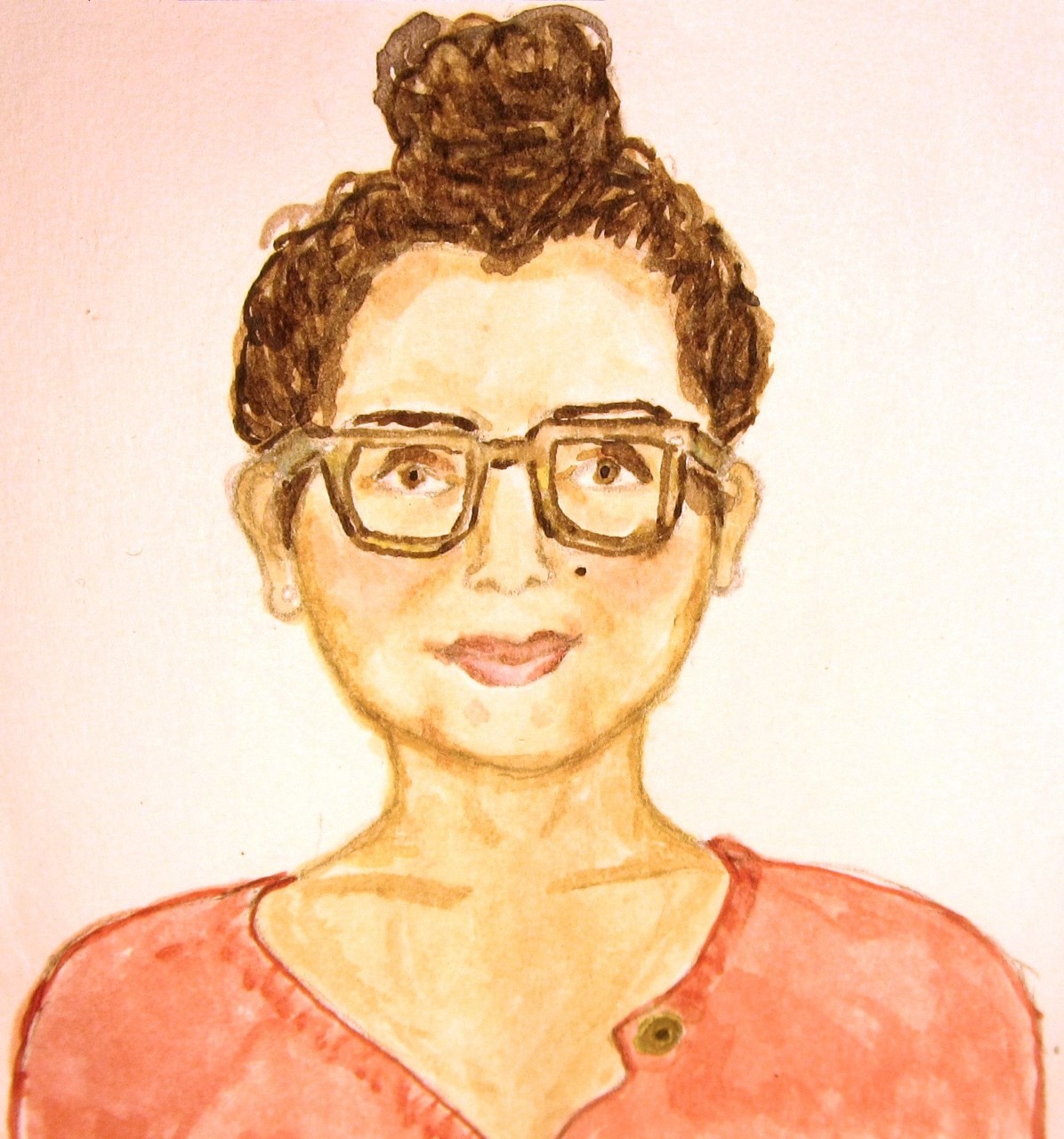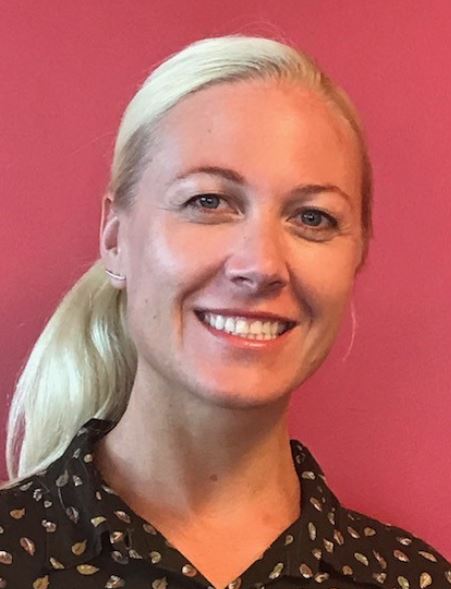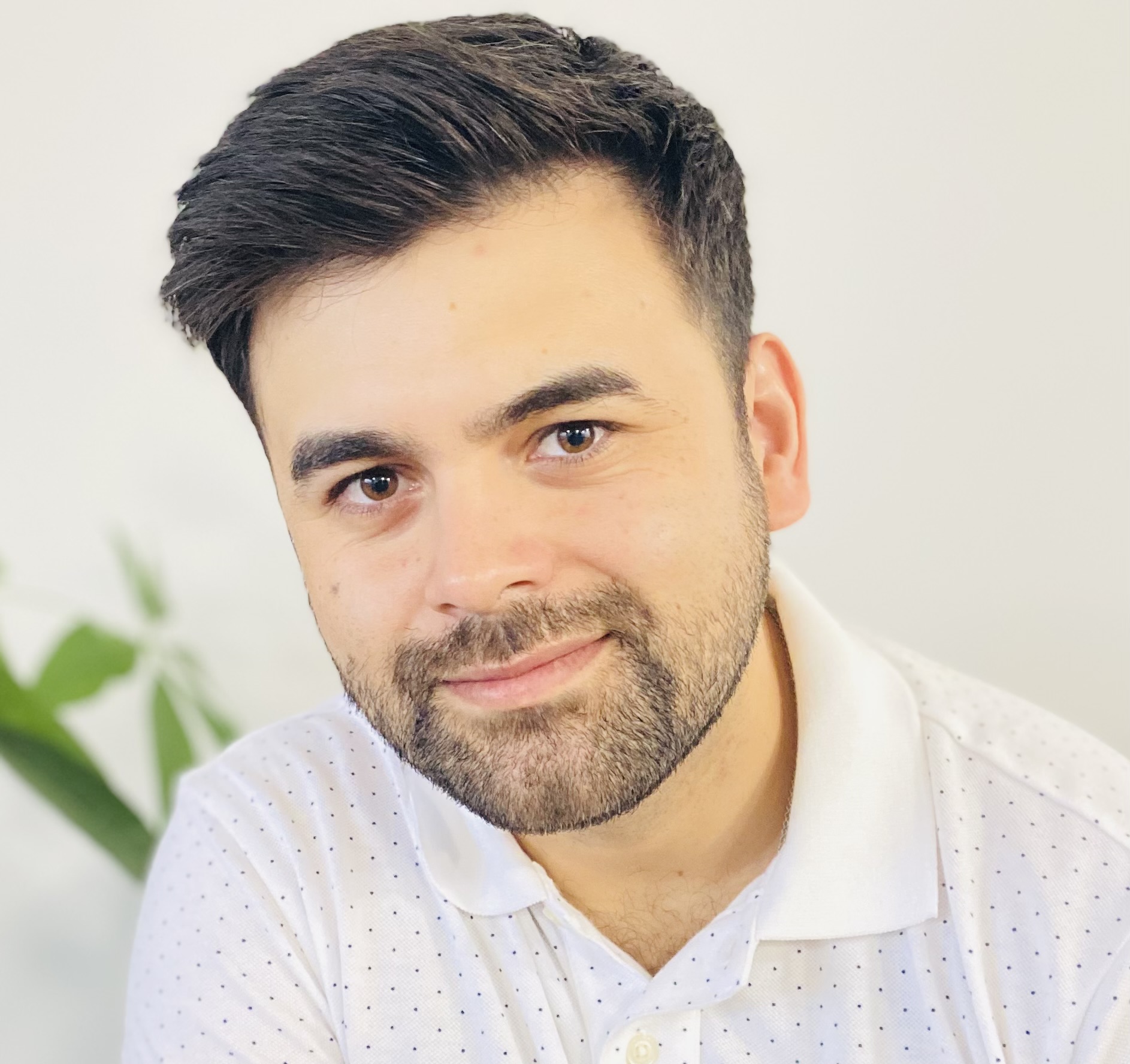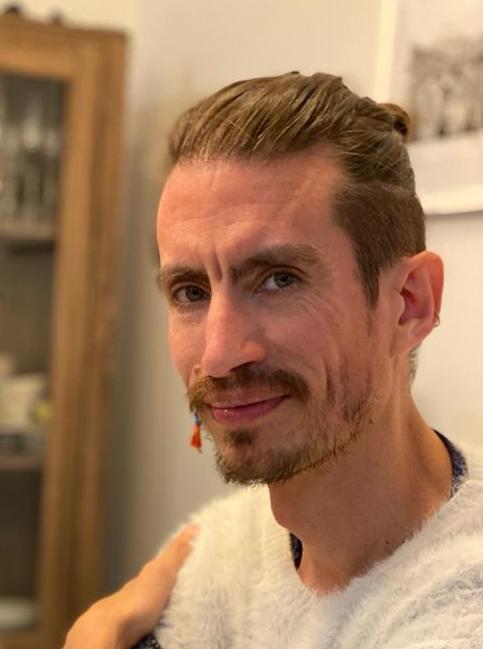
Sayyid-Ali Al-Zaidi
Ph.D. Candidate in Humanities, York University
Research Associate
About Sayyid-Ali Al-Zaidi
My doctoral research focuses on Orientalism, the history of archaeology in the Near East and Latin America from the 18th to 20th centuries, and Near Eastern studies in Latin America. My research interests also include Spanish phonology and loanword adaptation.
Country(ies) or Region(s) of Specialization: Mesoamerica, Andes, Argentina, and Brazil
Keywords: Archaeology, Art History, Orientalism, Linguistics, Religion, and Law

Sochitl Alfaro
Ph.D. Candidate in Gender, Feminist and Women's Studies, York University
Research Associate
About Sochitl Alfaro
My research focuses on sexuality education in schools in El Salvador.
Country(ies) or Region(s) of Specialization: El Salvador
Keywords: Sexuality Education, Decolonial Feminist Praxis

Maria Amuchastegui
Ph.D. Candidate in Science and Technology Studies, York University
Research Associate
About Maria Amuchastegui
I am a PhD student in Science and Technology Studies (STS). My dissertation will examine the work of the seventeenth-century Spanish philosopher Juan Caramuel, who took seriously the marginalized knowledge of indigenous peoples. It will explore how the indigenous peoples of the New World inspired Caramuel to develop his theory of numeration, his notion that there exist “many possible arithmetics”. It will draw upon postcolonial theory, especially as it relates to STS and the history of science.
In previous lives, I have variously been an educator, an IT consultant, a computer programmer, a human rights activist, and a freelance writer. One article that I wrote for This Magazine, “Take me to Havana,” was cited by both the Globe and Mail and the Toronto Star as the “best magazine read” of the week. Another article, “Farming it out,” inspired a Toronto Star investigative series on a farmworker, Hermelindo Gutiérrez, who faced deportation because of his health. As a result of the media attention that Gutiérrez received, he was allowed to remain in Canada.
I have served on the board of directors of Amnesty International Canada, where I helped lead Amnesty’s work on business and human rights, especially as it relates to Canadian mining companies in Latin America. I am a past president of the board of the Centro para Gente de Habla Hispana, a United Way agency that serves Toronto’s Latin American community. I have also been involved in groups such as the Latin American Coalition Against Racism (a group formed to combat police racism against Latinos), STATUS (a group that advocated for non-status immigrants), and No One Is Illegal.
Country(ies) or Region(s) of Specialization: Mexico, Peru, Paraguay
Keywords: History of science, postcolonialism, indigenous knowledge

Martin Barakov
Ph.D. Candidate in Politics, York University
Research Associate
About Martin Barakov
Martin Barakov is a PhD student in the Department of Politics at York University. His research principally centres on post-socialist urban development and the history of the Balkans since the late 1800s, but he also focuses on the evolution of Third Worldist theory and practice since the 1950s.
In relation to the latter, he analyzes the historical role of the Non-Aligned Movement (NAM) and the various political and economic collaborative efforts between the Second and Third World. Concerning Latin America specifically, he examines how left-leaning liberal-democratic governments are more prone to regime change through foreign intervention and domestic pressures while others (namely Cuba) are far more resilient. Critical examples include Brazil in 1964 and Chile in 1973, among others in the post-Cold War era such as Bolivia in 2019. He also explores militancy in the region and beyond in reference to the politics of national liberation (and other ideologically aligned movements) around the world.
Country(ies) or Region(s) of Specialization: Latin America and the former Eastern Bloc
Keywords: Third Worldism, social mobilization, political militancy, national liberation, regionalism

Linn Biorklund Belliveau
Ph.D. Candidate in Geography, York University
Research Associate
About Linn Biorklund Belliveau
Linn Biorklund Belliveau is a PhD candidate in the Department of Geography at York University. Her research interests include human displacement, violence, humanitarianism, and feminist geopolitics. The purpose of Linn’s doctoral research stem from years of working with displaced communities and non-governmental organisations, including Médecins Sans Frontières, in Mexico, Central America and many other parts of the world. Using ethnographic, participatory and art-based methods she engages feminist epistemologies and centres transnational collaborations, to question reductionist representations of people who manoeuvre cross border lives and related spaces. Her dissertation, which is funded by the Social Sciences and Humanities Research Council of Canada (SSHRC) and the Graduate Fellowship for Academic Distinction, is currently titled: Geographies of Violence and Contestation across Borders: Everyday Politics of Migrant Women at the Mexico-Guatemala U.S. Proxy Border. She also conducts research on temporary protection mechanisms, in view of restrictive immigration policies and wellbeing. Her related publications have appeared in journals such as Geopolitics; Refugee Survey Quarterly; and Conflict and Health. Linn is also a research fellow at York University Centre for Refugee Studies and Dahdaleh Institute for Global Health Research.
Country(ies) or Region(s) of Specialization: Mexico, Northern Central America
Keywords: Human displacement, violence, humanitarianism, feminist geopolitics

Mauricio Collao Quevedo
Ph.D Candidate in Social and Political Thought, York University
Research Associate
Research Cluster: Environment, Extraction, and Territory
About Mauricio Collao Quevedo
Mauricio is a Ph.D. candidate in Social & Political Thought. His research concerns the “geohistorical turn” in critical theory, green extractivism, and the geopolitics of the green energy transition. This work examines the current state of environmental politics and planetary thinking, centering in this research the concept of the Anthropocene and the history of the geosciences (esp. Earth System science, geology, and mineralogy). Empirically, Mauricio explores the operations of extractive industries in Chile’s Atacama Desert, focusing on the history of the legal frameworks and institutional arrangements that have facilitated successive waves of extractivist expansion in the region. Together, this research aims to shed a light on evolving strategies for the management of the geographical and material constitution of extraction zones in light of global efforts to develop green energy systems and post-extractivist planetary futures.
Country(ies) or Region(s) of Specialization: Chile
Keywords: Anthropocene, green extractivism, geoscience, history, energy transition
Alexander Cramer
Ph.D. Candidate in History, York University
Research Associate
About Alexander Cramer
I am a Ph.D. candidate in the Department of History who is interested in the strategic architecture of U.S. foreign relations with the Anglophone Caribbean during the Cold War. He currently serves as an archival assistant at the CERLAC resource center under the supervision of Dr. Liisa North. Over the Summer of 2022, he is assisting in digitizing archival sources on the history of Black power, Indigenous land rights, and women’s movements in the Anglophone Caribbean.
Country(ies) or Region(s) of Specialization: Anglophone Caribbean, Jamaica
Keywords: radical politics, racial justice, social movements, and decolonization from below

Esteban Donoso
Ph.D. Candidate in Theater and Performance Studies, York University
Research Associate
About Esteban Donoso
Being originally a dancer in Ecuador myself, my research focuses on concert dance practices in Quito-Ecuador. Since dominant narratives about concert dance are -for the most part- originated, located and modelled through global centers and designs -like Europe and North America-, my work starts as an effort to examine the colonial determinations at play when looking at and writing about the local practices. Within a Eurocentric, historicist framework, Ecuadorian concert dance would necessarily be rendered as a ‘minor’ history. I am interested in how this imbalance of participation in the making of those narratives determines and influences the local dance practices themselves, but also, creates an affective atmosphere that doesn’t allow for autonomy or mobility within the form. In order to deal with that asymmetry, I have endeavored to develop modes of self-narrating the local dance history.
Keywords: Concert dance
